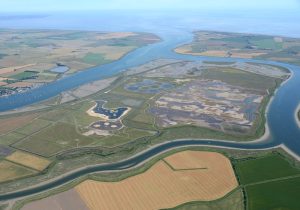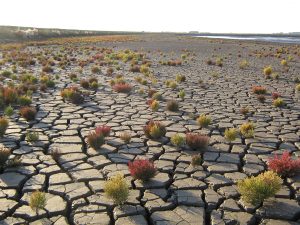2024 Award Winner’s Spotlight: In Practice
Colin Scott MCIEEM and Suzanne Armstrong
Wallasea Island: Showing why and how to rewild the coast
Published March 2023
This award was sponsored by:
This article described the completion of the largest and most ambitious coastal wetland restoration project in Europe on Wallasea Island, Essex. Nearly two decades of collaborative work by many partners and specialists had transformed this 800 ha flat expanse of, largely, poor quality agricultural land into a unique and biodiverse mix of islands, mudflats, saltmarshes, coastal grazing land and freshwater wetlands that are managed by the RSPB.
The authors focused on the distinctive and ambitious coastal adaptation techniques that were used at an unprecedented scale in order to create an exemplar of sustainable landscape-scale coastal habitat. Wallasea Island is the first, and so far only, UK coastal site on the Rewilding Europe network and demonstrates how coastal rewilding can be done.

The article went on to describe the manner and scale of this project’s implementation, emphasising how it has achieved multiple long-term social, environmental and economic benefits for society. By creating habitats with benefits for amenity, health and community engagement as well as biodiversity, the changes will help to avoid major damage from a future unmanaged sea wall breach, promote sedimentation to accommodate future sea level rise and contribute to climate change mitigation through carbon sequestration. In particular, it is now a popular recreational site. It was not easily accessible or very safe for people previously, but now visitors can explore 15 km of trails running through the reserve, and can visit viewing shelters and platforms. Today, around 20,000 people visit Wallasea every year.
The authors also noted that the project is effectively a ‘living library’ of the many different sustainable coastal adaptation practices that are available for implementing and managing fresh, brackish and saline wetlands.
